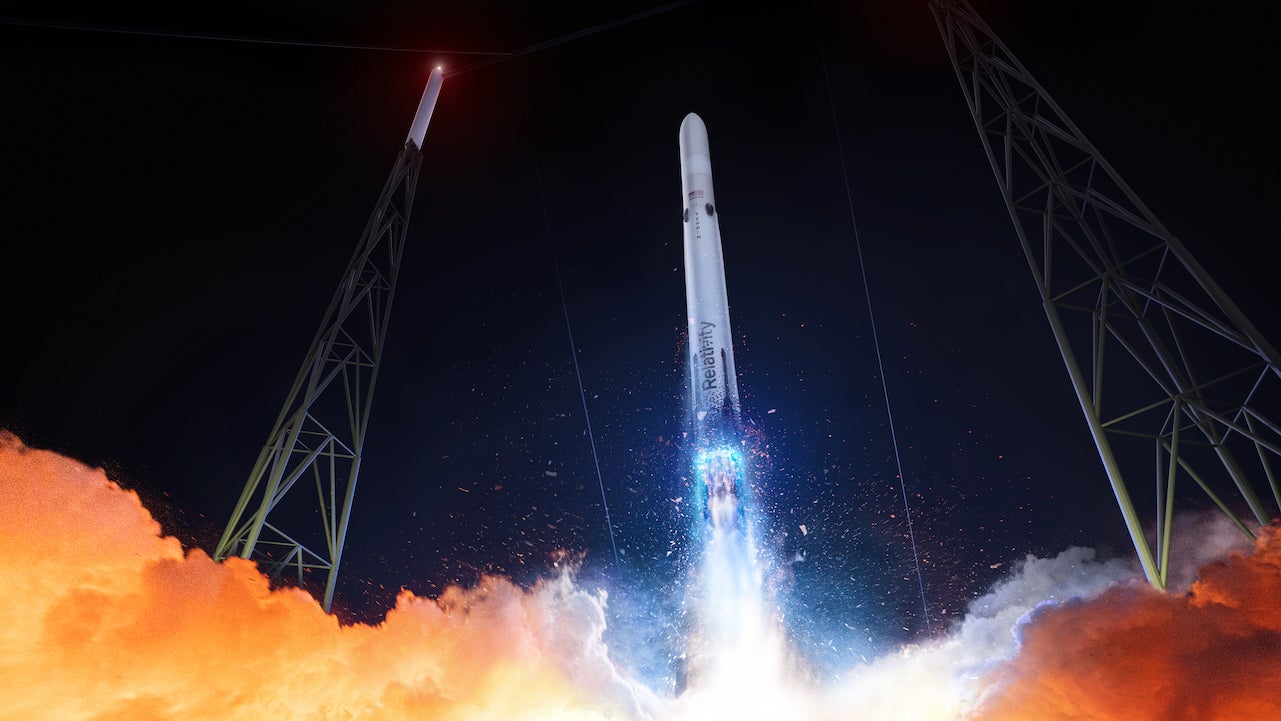Latest News

Rendering of a Terran R launch. Photo: Relativity Space
Relativity Space is shifting its focus away from the recently tested Terran 1 rocket, to accelerate the Terran R rocket to commercial service, which the company says will meet “significant and growing market demand.”
“Our first chapter as a company was to prove to the world 3D printed rockets were viable. We just did that with Terran 1. Our second chapter is to build the next great launch company with Terran R.” Relativity Space co-founder and CEO Tim Ellis said in a Wednesday release. “Terran 1 was like a concept car, redefining the boundaries of what is possible by developing many valuable brand-new technologies well ahead of their time. Terran R is the mass-market, huge demand product.”
This comes after Relativity Space tested its Terran 1, 3D-printed rocket last month. The company reported in a post-launch update shared Wednesday that the rocket did reach space, passing the Karman line above 100 km. The vehicle went through Max-Q and stage 1 burn, and stage 1 and 2 separated successfully. However, the stage 2 engine did not reach full thrust. The rocket reached 134 km, and the flight was terminated after stage 2 did not reach full performance.
Relativity Space now plans to begin launching Terran R in 2026 from Space Launch Complex 16 at Cape Canaveral, Florida.
Terran R is a two-stage, 270-foot-tall rocket with an 18-foot diameter and a 5-meter payload fairing. It is designed to provide medium to heavy lift services, with the capability of launching 23,500 kg to Low Earth Orbit (LEO) or 5,500kg to a Geosynchronous Transfer Orbit (GTO), with a reusable first stage, or a maximum payload of 33,500 kg to LEO in expendable configuration. The company intends to design major parts of the vehicle for 20 reuses.
Terran R was first revealed in June 2021. Relativity has increased the size and capacity plans for the rocket compared to what was first announced.
“Terran R is the most customer-centric next generation launch vehicle,” Ellis said. “It is not a conventional rocket. This is a new breed of launch vehicle with the right payload performance, reliability, focus on speed of development, optimized reusability, focus on scalability of launch ramp rate, and ultimately cost reduction baked into the architecture design and our program plans from day one.”
Relativity said that it currently has launch service agreements that amount to more than $1.65 billion across seven customers.
Iridium, which signed a deal in 2020 for up to six dedicated launches to deploy ground spares for its Iridium NEXT’s constellation on the Terran 1 vehicle, shared a statement supporting the shift in focus.
“As Iridium knows, being successful in space takes hard work, innovation and perseverance. We applaud their transition now to completing Terran R, which is better aligned with industry’s anticipated future launch requirements. We look forward to seeing Relativity’s continued success and the new possibilities they are bringing to the industry as a whole,” commented Iridium CEO Matt Desch.
Get the latest Via Satellite news!
Subscribe Now